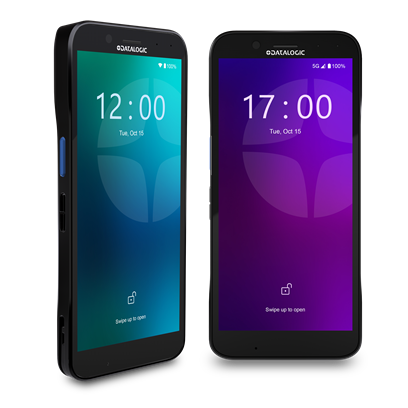
Check In, Security Control and Bag Drop-Off Handling
Check In, Security Control and Bag Drop-Off Handling
Over the last decade, there has been a rise in self check-in and baggage drop-off handling points within airports. This is now the preferred option for passengers making short business trips and carrying only small items of luggage that don’t necessarily need to be checked into the baggage hold. Secondly, the pandemic has given rise to the “contactless” check-in process, thus avoiding any contact between passengers, operators, and baggage.
Technology advancements in passenger and baggage supervisory software systems allow for easy linking of data across multiple servers and databases. Datalogic offers several solutions to accomplish this task – a handheld or single plane fixed scanners can help in semi-automated operation, whilst an automated reading system with a 360° stationary industrial scanner set-up can provide a fully automated solution.
Datalogic provides much of the barcode scanning hardware, enabling efficient scanning of passenger and baggage data, with seamless integration into enterprise software. Barcodes are readily scanned in different points during check-in and bag drop off handling within an airport from different media including passenger boarding passes on paper or from mobile phone screens.
By efficiently managing inbound logistics in the food and beverage manufacturing industry, companies can maintain product quality, reduce waste, comply with regulations, and ensure the timely availability of materials for production, ultimately supporting customer satisfaction and brand reputation.
MANUAL CHECK-IN

Check-in is the first procedure for a passenger. At the check-in desks, the agent validates the flyers’ passport, documents, tickets and then registers the luggage by applying a barcode label. Later he scans the barcode label using a Datalogic handheld reader easily integrated into the check-in desk, providing a quick and efficient scan of the luggage label.
Several models with different reading technologies, connectivity, ergonomics and design be selected to meet specific needs.
AUTOMATIC BAG DROP

Passengers are guided to put their luggage onto a machine belt. The barcode tag on the luggage is automatically identified by stationary industrial scanners (laser or imager) to allow acceptance into the baggage handling system.
SEMI AUTOMATIC SELF CHECK-IN

Several airlines have a self service kiosks to speed up the check-in and baggage drop-off process, reducing wait times.
A handheld reader is used by passengers during the self check-in process to scan the barcode label attached to their luggage.
KIOSKS

With the use of a mobile phone, passengers can now check-in from almost anywhere. By showing the 2D code on the phone screen to the kiosk barcode reader, the boarding pass can be printed.
SECURITY CONTROL

The boarding pass is manually checked using compact mobile computers during passenger transit from different airports areas.
Video Gallery
Level Up Airport Operations with Datalogic’s End-to-End Solution
Datalogic Memor 12-17 Family | Enterprise-Grade Power in a...
#DidYouKnow | Trigger testing










